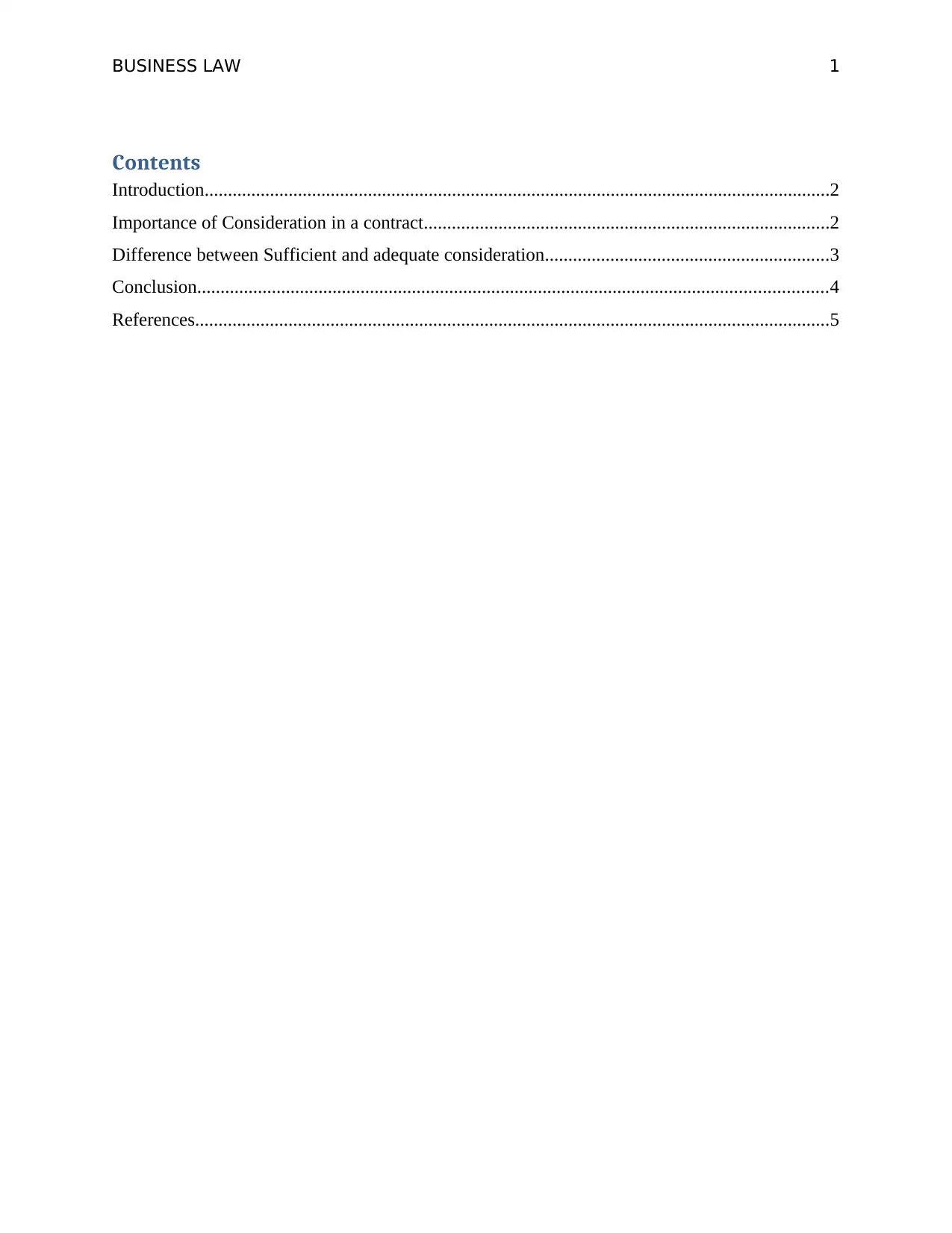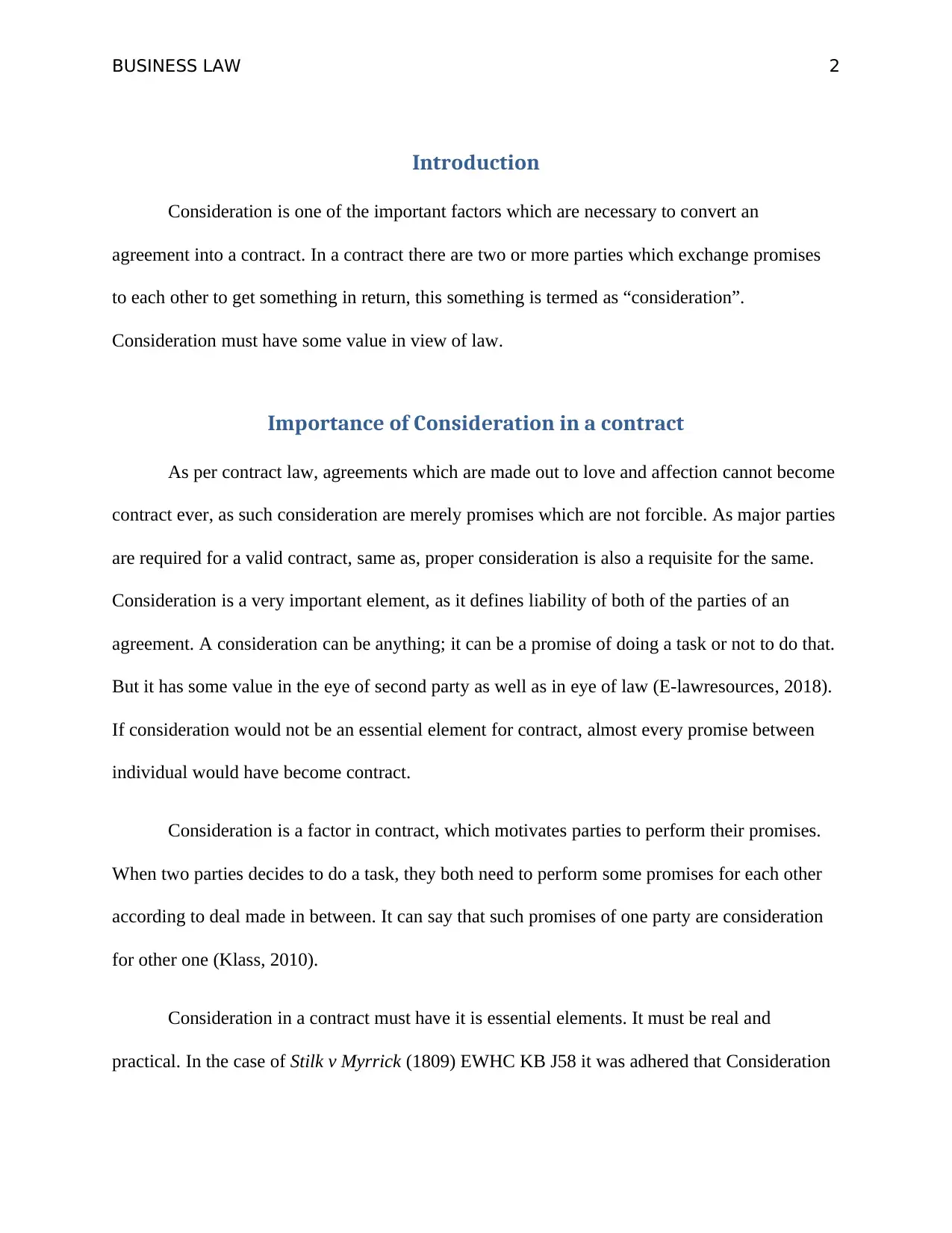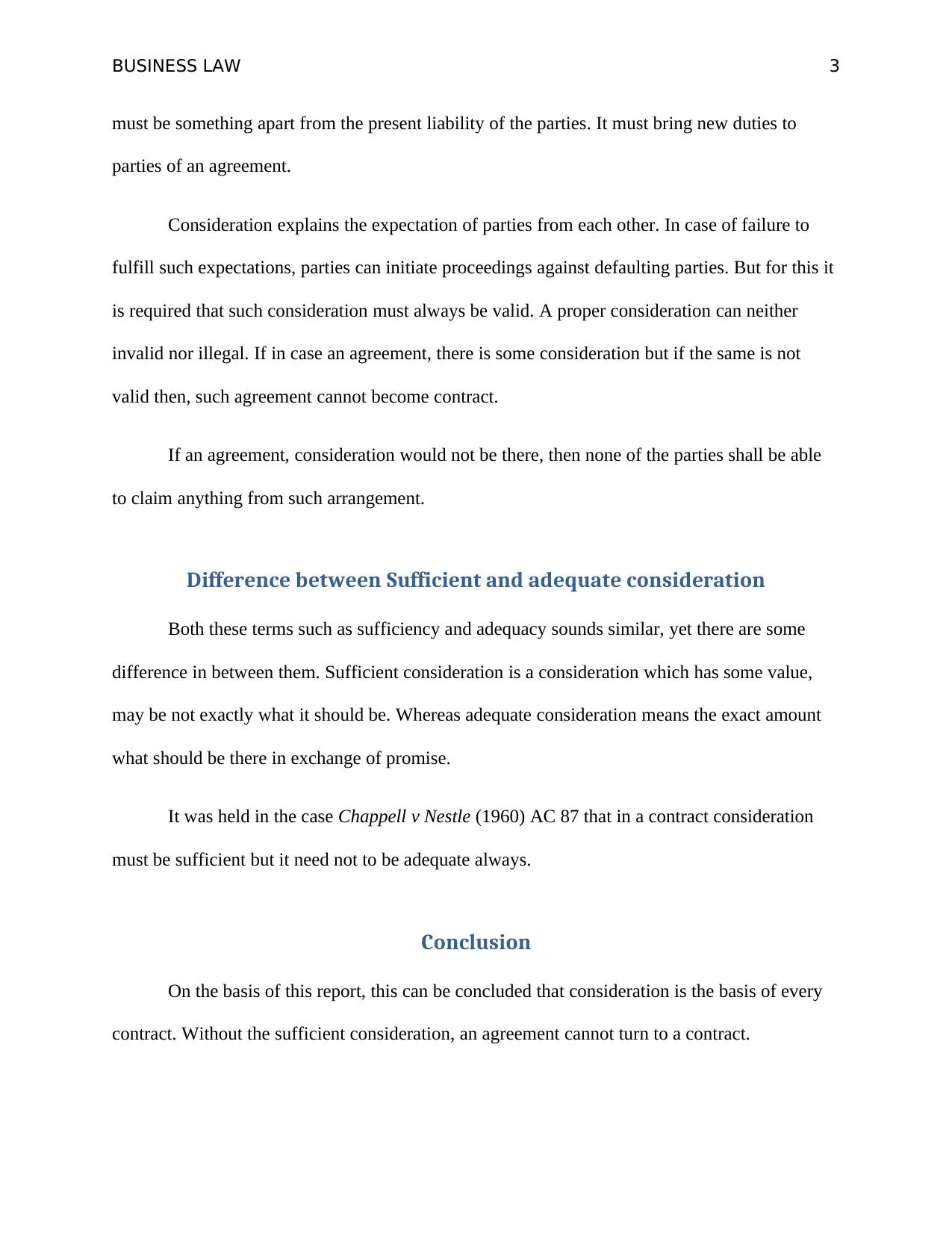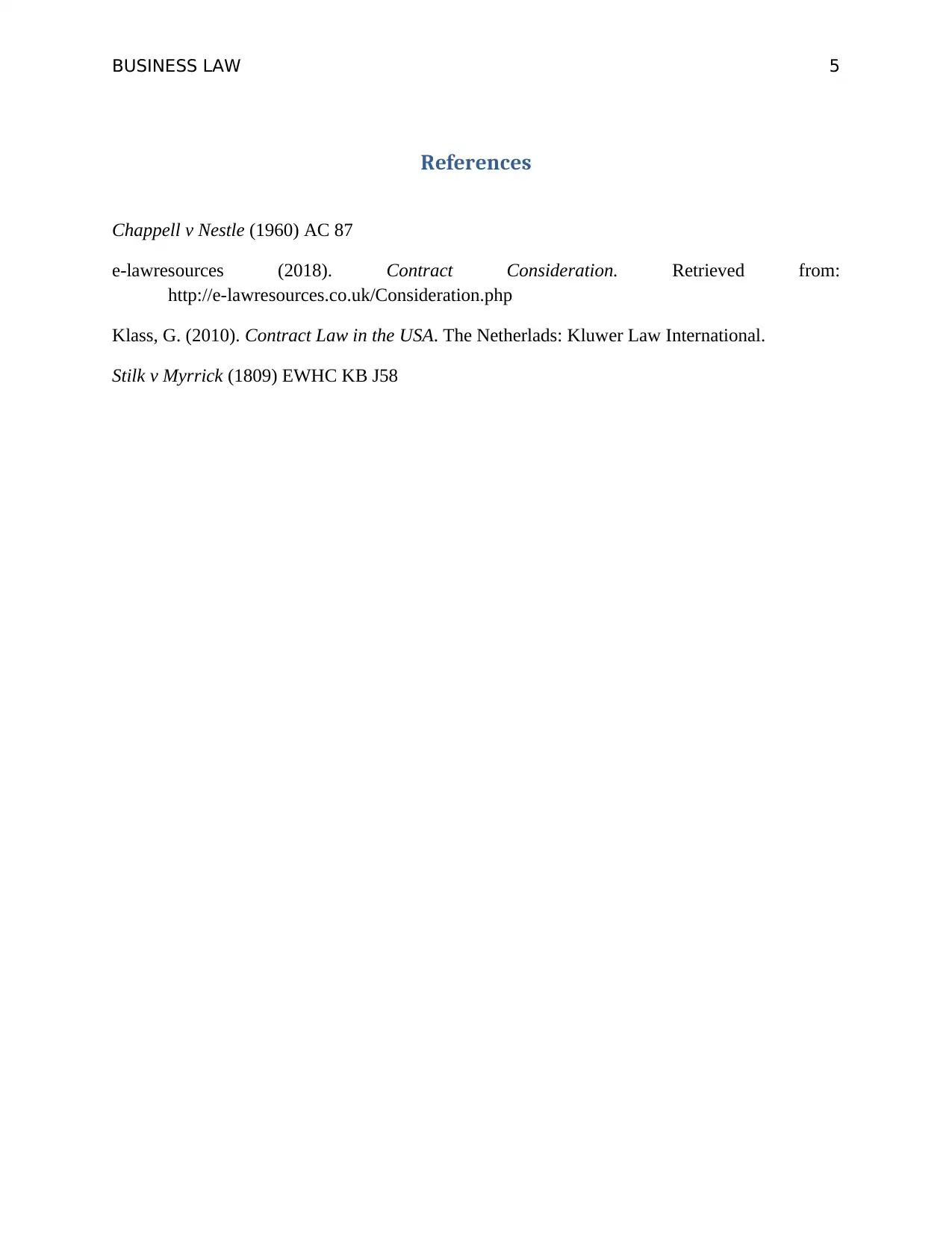Business Law: Consideration, Sufficiency, and Adequacy Report
VerifiedAdded on 2021/06/16
|6
|673
|89
Report
AI Summary
This report delves into the crucial role of consideration within the framework of business law, emphasizing its significance in forming valid contracts. It highlights that consideration, which can encompass various forms, must hold legal value to be enforceable. The report further explores the distinction between sufficient and adequate consideration, referencing case law like Chappell v Nestle (1960) AC 87 and Stilk v Myrrick (1809) EWHC KB J58 to illustrate key concepts. The report concludes that consideration forms the bedrock of every contract, with a discussion on the essential elements for its validity and the consequences of its absence. The report examines the essential aspects of consideration, including its real and practical nature, along with the expectations of parties within an agreement. It also outlines the implications for failure to meet expectations and the importance of valid consideration.
1 out of 6













![[object Object]](/_next/static/media/star-bottom.7253800d.svg)